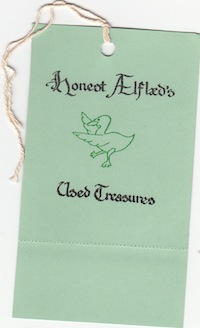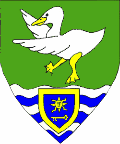 |
I didn't specifically mention this. I had originally intended to. It's about how much more important it is to help newcomers than to help "nobility." Every member of nobility was once a newcomer, and will remember those early kindnesses forever, and it's good for the group for people to be generous and helpful to newer folk.
The bottom of that page has links to the other "considerations" columns. Some are still of interest. Some might not be. From an article on what happens in peerage circles: "Disservice cancels out service." Some of the details might be outdated, but as to virtues and service, there's a timelessness and general applicability to anyone wanting to be a better person, a more helpful person.
From the end of 1998, September, after a season of discussing virtues with a group:
Show by word and deed that you are growing in awareness.That's all.
Good luck! I'm not the one who'll score it—everyone you know scores.. . . .
It's an open book test, an open world test. Everything is fair. You can get all the help you want to, before during and after situations and decisions.
from Big Test at the Duckford School
(only one item on the test, that "word and deed" thing)
Character and virtue don't have "time out."
Is there ever really "Time Out"? We can't impose our best ideas on other people, we can just use all the ideas we come across to check, shape and hone our own beliefs.
Recently discovered 1995 writings about the SCA—why, how, resentments, excitement—never online until September 28, 2018:
Living History Groups
I FORGOT TO SHOW THIS ONE, sorry. I bought a little stool with a storage box, and later discovered the same pattern on a Chinese antiques site. There are some photos of three different ones. This one was thinking "practical" and it turning out to be historical, just not European. Little stool in history and one at my house—Chinese Barber Stool
Photos of the nuns in denim habits by Robert Falchetti are here: "La Vita Monastica". The monastery has a website.
- One of their order was a Tony-nominated actress, who was on stage and also film (two Elvis movies, and other things): Mother Dolores Hart.
- One of the nuns has a PhD in Shakespearean studies.
- One is a daughter of General George S. Patton.
In the set of photos linked above, you can see nuns' veils with various other hats on top, and a bandana, on one.
Make the Better Choice, which begins with a friend of mine summarizing what she had picked up from me over years of us working together.
Choices in Parenting, Unschooling and the rest of Life (a directory page)
"People can come nearer to the way they would like to be, but only incrementally, choice by choice."
(from "Getting Warm":
Warmth and Choices)
That page has examples of these incremental decisions being like playing "You're getting hot / you're getting cold."
This page is a bit buried—part two of a section on peerage, put up when there was a length limit on web pages, without an outgoing link. It has some good ideas for anyone, though, everyone.
If a peer gets tired of the duties of peerage, can't he just take off his regalia and declare a time out? Never. Not only does everything a peer does "count" at all times, it's also the business of the general public.Why should the peers' lives and actions be so discussed? It gets worse the higher your rank. Being set apart in public as an example of something higher, better, good or special makes one visible and responsible for the example he sets. .... The best way to get out unscathed is to be honorable, hardworking and as fair as possible.
What about dropping out completely? Well, you can't do that, either. Having become a major character in this play, you can't just disappear and never have it discussed where and why you've gone, and under what circumstances you might come back. If you do come back, you pick up in the same position in precedence you had before, and are expected to explain your absence. This is true all up and down the line, because even getting an award of arms puts you on the order of precedence, so your name and dates are public record, and anyone who ever sees the listings is free to ask "Who's so-and-so and where'd he go?" The awards don't dissolve just because the person becomes inactive. Maybe it should've been set up like that a long time ago, but it wasn't, so we live with it.
What Really Happens in Peers' Circles (continued)
Leif Ivarson, whose vigil question brought around "make the more medieval choice." He was knighted that next morning (May 1987), and was King of the Outlands twice, later (1990, 1993).

Ælflæd of Duckford